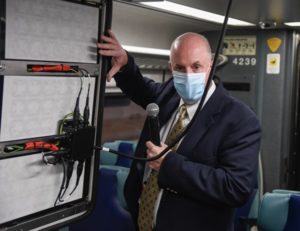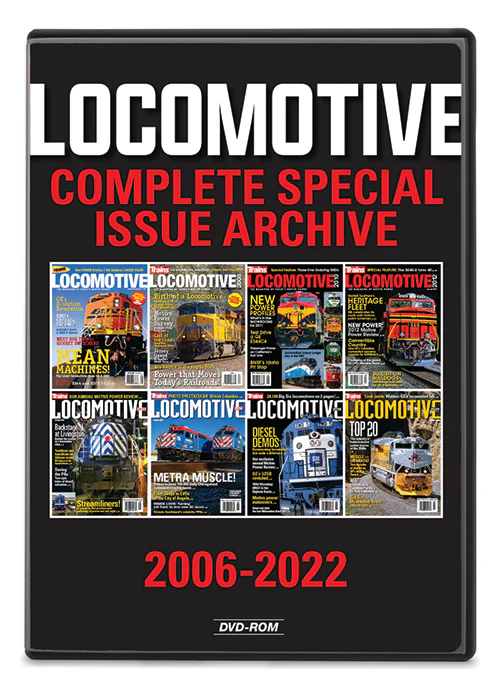
Marc A. Hermann, MTA New York City Transit
Friday morning rail news:
MTA commuter railroads to test air-cleaning system that kills almost all viruses, bacteria
The Metro-North Railroad and Long Island Rail Road will test an air filtration and purification system that claims to kill 99.99% of airborne viruses and bateria while scrubbing out particulate matter. The Metropolitan Transportation Authority announced Thursday it will test the system developed by Knorr Brake Co., which uses an electrical field to generate ionized particles to filter and purify air. It is incorporated into the existing ventilation and filtration system, which already filters air every two minutes. “This addition to our ventilation would be completely invisible to the customers,” Metro-North Chief Mechanical Officer James Heimbuecher said in a press release. “We like that it can be incorporated into our existing ventilation systems with minimal intrusion. If this pilot proves successful, our crews are ready to begin adding this system across our entire fleet.” The MTA and researches with the U.S. Environmental Protection Agency will test the program to assess its effectiveness. The system has already been installed on a Metro-North car and will be added to a Long Island car by the end of the month.
New structure would take on passenger functions as part of Baltimore Penn Station redevelopment
Baltimore’s historic Penn Station will essentially be replaced by a new, modern structure as part of the redevelopment of the 1911 Beaux Arts structure designed by New York architect Kenneth MacKenzie Murchison, a noted designer of stations. The website Baltimore Fishbowl reports the existing station will be converted to business and office space; passengers could pass through the current station to the new three-story structure with large expanses of glass, or use a new main entrance on St. Paul Street. The new structure, described by developers as as the “north station” or “north annex, among other terms, will be built on a triangular lot bounded by Charles, Lanvale and St. Paul streets. Construction could begin in late 2020 or early 2021 and is projected to take 24 months.
Washington Supreme Court strikes down ballot initiative that would have reduced transit funding
The Washington state Supreme Court has struck down an initiative that would have reduced tax funding for transit and highway projects, almost a year after the ballot measure was approved by voters. The Seattle Times reports Initiative 976, to reduce vehicle license fees, was “deceptive and misleading,” according to a decision signed by eight of the court’s nine justices. When the initiative passed, Seattle-area agency Sound Transit said it could lose approximately 11% of its annual funding as a result, but it elected to wait on possible cuts until the court ruled on a suit brought by Seattle and King County [See “Sound Transit takes wait-and-see approach …,” Trains News Wire, Nov. 25, 2019]. In a statement, Seattle Mayor Jenny Durkan hailed the ruling, saying, ““With the Seattle Department of Transportation facing significant budget challenges in the current economic landscape, this decision will help our City with needed resources to keep our residents and workers moving as we recover from the pandemic.”









